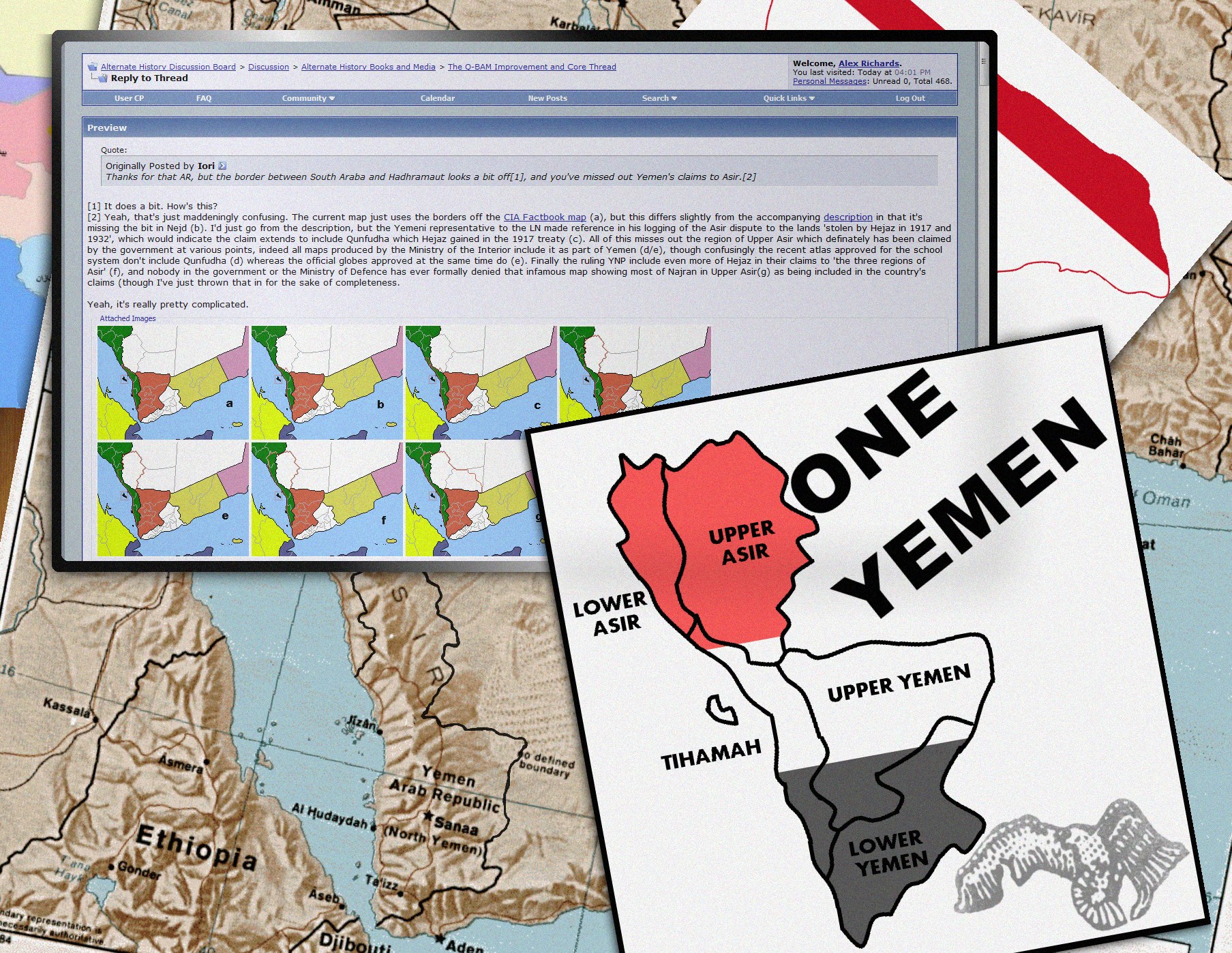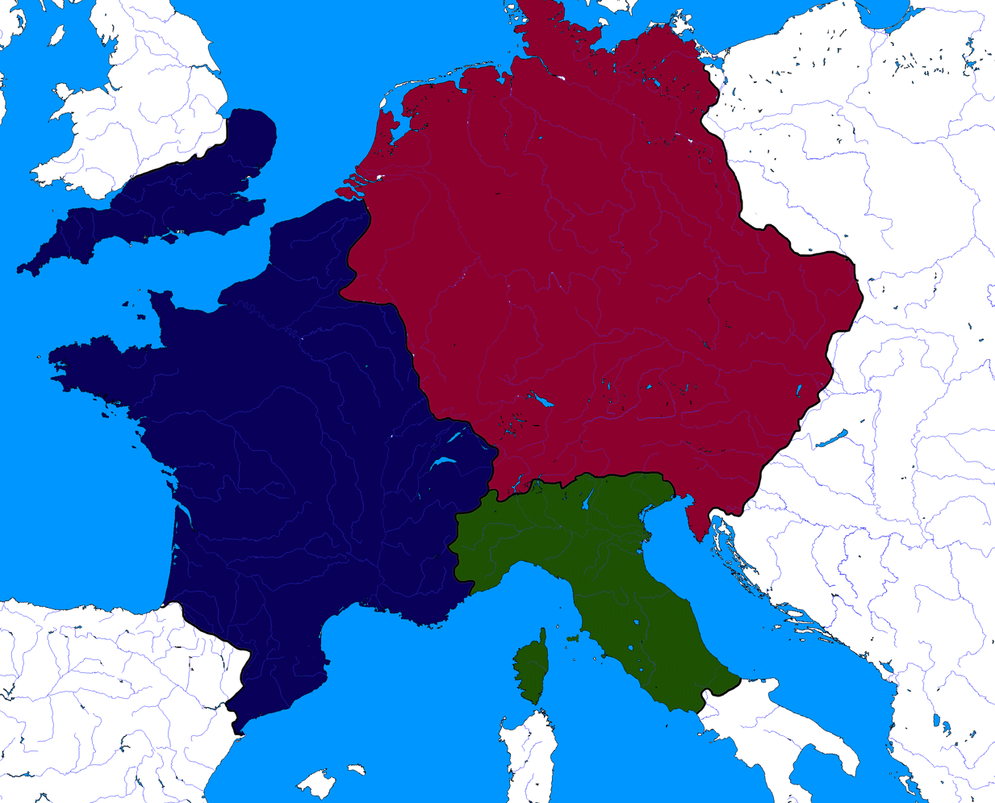Ephraim Ben Raphael
Banned
Part Nine of my Rebel North Map Series;
Previous maps;
https://www.alternatehistory.com/disc...postcount=2236
https://www.alternatehistory.com/disc...postcount=2282
https://www.alternatehistory.com/disc...postcount=2305
https://www.alternatehistory.com/disc...postcount=2465
https://www.alternatehistory.com/disc...postcount=2505
https://www.alternatehistory.com/disc...postcount=2527
https://www.alternatehistory.com/disc...postcount=2546
https://www.alternatehistory.com/disc...postcount=2662
https://www.alternatehistory.com/discussion/showpost.php?p=7792608&postcount=2702
The Fourth World War will be one of those wars that no one actually wins. The EUSR manages to control the channel and invade Britain, only for a mutual nuclear exchange to devastate southern England and France (small, Hiroshima style bombs as both sides want the territory). This allows a joint American-British force to defeat the first invasion; however Voroshilov keeps trying, landing again in Southern Ireland and on the Northumbrian coast. As this is going on GEACPS is pressing deep into the EUSR in Siberia and Central Asia. The Chinese and Japanese have numbers but the huge expanse of Siberia means that they face continuous resistance by Eurasian partisans and logistics are a serious problem. Central Asia goes much better. The Red Army is successful in taking the remaining British possessions in the Med and has a string of victories in North Africa, however the demands of a three front war prevent them from capitalizing on their wins and they do not push into West Africa.
The war in the west is brutal, both Britain and the EUSR are at Total War footing and small atomic devices pepper western Europe (the entire war will involve the use of 46 atomic bombs in the west and 72 in the east, most tactically) as conventional troops dig into each-other in the British isles. The American and Royal navies combined however are too much for the Red Army Navy and by late 1964 the Eurasian invaders are cut off.
The winter of 1965 is particularly bad- exacerbated by the smoke and dust thrown up from the limited nuclear exchange- and the Red Army takes advantage of it to strike back at the GEACPS forces with atomic bombs and a conventional counter-attack. Chinese and Japanese lines collapse in Siberia (there is a reason invading Siberia during a mild nuclear winter is a bad idea) and pockets of East Asian holdouts are encircled and destroyed. The Chinese army in Central Asia is cut off but manages to break out of the lines encircling it and retreats into China proper. Voroshilov tries to follow up on his victory by invading China itself, however his men only penetrate a short distance into Mongolia and Manchuria before a GEACPS nuclear and conventional counter-attack drives them out. China and Japan still have numbers after all.
World War Four is the shortest World War yet, lasting a little less than three years and ending in 1966. Crop failures and fear of the devastating power of nuclear weapons bring both sides to the table, as does the fact that they have already managed to rack up a body count bigger than World War Three with nothing to show for it and no apparent promise of victory. The EUSR cannot conquer the British Isles (their invading force is wiped out after they lose the ability to resupply them) or successfully invade East Asia, while the Greater East Asian Co-Prosperity Sphere cannot successfully invade Russia, and neither America nor Britain is in any shape to try and liberate Europe. Peace negotiations are primarily a return to status quo, except in the Mediterranean and North Africa where the EUSR gains territory.
The biggest effect of the war is that the EUSR remains on a war footing even after it's over in order to better handle the devastation in Western Europe and food shortages. Since Eurasia is still on a war footing China and Japan remain on a war footing, with emphasis on 自已的歼灭 still universal. Japan has its own version of 自已的歼灭 called Daishi. In 1967 Hong Tianguang dies of a heart attack brought on by his opulent lifestyle and China is put in crisis- Hong has no surviving sons and his daughter is unsuitable (because she's a woman, she’s unsuitable because she’s a woman).
The ink on the peace treaty is scarcely dry when Goldstein and his Brotherhood (with the tacit approval of Robert Flagg) overthrow the British military dictatorship and proclaim a Union of the British Isles along English Socialist lines. American troops remain stationed throughout the islands for protections and “Big Brother” Flag is able to pressure Goldstein into ceding the British islands in the South Atlantic to America- an act which Goldstein resents. The British Empire subsequently collapses as colonial governments are unwilling to remain loyal to the new regime.
I don't want to have to list what happened to every single part of the British Empire (if you want details about a specific area then ask) but here are the major bits; a UK/BE based in South Africa that crowned the Duke of York King (the Prince of Wales couldn't make it out of Britain in time to avoid being disappeared) and is currently at war with the Republic of South Africa (SA has US backing), the African League which is a military alliance of Séparé (Apartheid) states that includes all the former British colonies in East Africa, the Pacific Commonwealth composed of Australia, New Zealand, and the British Pacific Islands (is afraid of both America and GEACPS- the Commonwealth is the world's second largest democracy after India whose democratic-ness is up for debate), and the Republic of England in Ghana.
The European empires-in-exile in Africa continue to disintegrate, exacerbated by the loss of North Africa.
In the Middle East the Iraqis defeat the Khalifate of North Syria. In Arabia the Khalifate of Mecca and the Union of Oman begin the undeclared Sand War- a war characterized by tiny bands of soldiers fighting unimportant skirmishes in the uninhabitable desert of South-East Arabia. It started when Oman discovered that Mecca was trying to take advantage of the emptiness of the region to sneak infiltrators in through there. Said infiltrators would try to reach more populated territory unnoticed where they would help organize and train Mahdist groups.
Map is of 1967. Thoughts?

Previous maps;
https://www.alternatehistory.com/disc...postcount=2236
https://www.alternatehistory.com/disc...postcount=2282
https://www.alternatehistory.com/disc...postcount=2305
https://www.alternatehistory.com/disc...postcount=2465
https://www.alternatehistory.com/disc...postcount=2505
https://www.alternatehistory.com/disc...postcount=2527
https://www.alternatehistory.com/disc...postcount=2546
https://www.alternatehistory.com/disc...postcount=2662
https://www.alternatehistory.com/discussion/showpost.php?p=7792608&postcount=2702
The Fourth World War will be one of those wars that no one actually wins. The EUSR manages to control the channel and invade Britain, only for a mutual nuclear exchange to devastate southern England and France (small, Hiroshima style bombs as both sides want the territory). This allows a joint American-British force to defeat the first invasion; however Voroshilov keeps trying, landing again in Southern Ireland and on the Northumbrian coast. As this is going on GEACPS is pressing deep into the EUSR in Siberia and Central Asia. The Chinese and Japanese have numbers but the huge expanse of Siberia means that they face continuous resistance by Eurasian partisans and logistics are a serious problem. Central Asia goes much better. The Red Army is successful in taking the remaining British possessions in the Med and has a string of victories in North Africa, however the demands of a three front war prevent them from capitalizing on their wins and they do not push into West Africa.
The war in the west is brutal, both Britain and the EUSR are at Total War footing and small atomic devices pepper western Europe (the entire war will involve the use of 46 atomic bombs in the west and 72 in the east, most tactically) as conventional troops dig into each-other in the British isles. The American and Royal navies combined however are too much for the Red Army Navy and by late 1964 the Eurasian invaders are cut off.
The winter of 1965 is particularly bad- exacerbated by the smoke and dust thrown up from the limited nuclear exchange- and the Red Army takes advantage of it to strike back at the GEACPS forces with atomic bombs and a conventional counter-attack. Chinese and Japanese lines collapse in Siberia (there is a reason invading Siberia during a mild nuclear winter is a bad idea) and pockets of East Asian holdouts are encircled and destroyed. The Chinese army in Central Asia is cut off but manages to break out of the lines encircling it and retreats into China proper. Voroshilov tries to follow up on his victory by invading China itself, however his men only penetrate a short distance into Mongolia and Manchuria before a GEACPS nuclear and conventional counter-attack drives them out. China and Japan still have numbers after all.
World War Four is the shortest World War yet, lasting a little less than three years and ending in 1966. Crop failures and fear of the devastating power of nuclear weapons bring both sides to the table, as does the fact that they have already managed to rack up a body count bigger than World War Three with nothing to show for it and no apparent promise of victory. The EUSR cannot conquer the British Isles (their invading force is wiped out after they lose the ability to resupply them) or successfully invade East Asia, while the Greater East Asian Co-Prosperity Sphere cannot successfully invade Russia, and neither America nor Britain is in any shape to try and liberate Europe. Peace negotiations are primarily a return to status quo, except in the Mediterranean and North Africa where the EUSR gains territory.
The biggest effect of the war is that the EUSR remains on a war footing even after it's over in order to better handle the devastation in Western Europe and food shortages. Since Eurasia is still on a war footing China and Japan remain on a war footing, with emphasis on 自已的歼灭 still universal. Japan has its own version of 自已的歼灭 called Daishi. In 1967 Hong Tianguang dies of a heart attack brought on by his opulent lifestyle and China is put in crisis- Hong has no surviving sons and his daughter is unsuitable (because she's a woman, she’s unsuitable because she’s a woman).
The ink on the peace treaty is scarcely dry when Goldstein and his Brotherhood (with the tacit approval of Robert Flagg) overthrow the British military dictatorship and proclaim a Union of the British Isles along English Socialist lines. American troops remain stationed throughout the islands for protections and “Big Brother” Flag is able to pressure Goldstein into ceding the British islands in the South Atlantic to America- an act which Goldstein resents. The British Empire subsequently collapses as colonial governments are unwilling to remain loyal to the new regime.
I don't want to have to list what happened to every single part of the British Empire (if you want details about a specific area then ask) but here are the major bits; a UK/BE based in South Africa that crowned the Duke of York King (the Prince of Wales couldn't make it out of Britain in time to avoid being disappeared) and is currently at war with the Republic of South Africa (SA has US backing), the African League which is a military alliance of Séparé (Apartheid) states that includes all the former British colonies in East Africa, the Pacific Commonwealth composed of Australia, New Zealand, and the British Pacific Islands (is afraid of both America and GEACPS- the Commonwealth is the world's second largest democracy after India whose democratic-ness is up for debate), and the Republic of England in Ghana.
The European empires-in-exile in Africa continue to disintegrate, exacerbated by the loss of North Africa.
In the Middle East the Iraqis defeat the Khalifate of North Syria. In Arabia the Khalifate of Mecca and the Union of Oman begin the undeclared Sand War- a war characterized by tiny bands of soldiers fighting unimportant skirmishes in the uninhabitable desert of South-East Arabia. It started when Oman discovered that Mecca was trying to take advantage of the emptiness of the region to sneak infiltrators in through there. Said infiltrators would try to reach more populated territory unnoticed where they would help organize and train Mahdist groups.
Map is of 1967. Thoughts?

